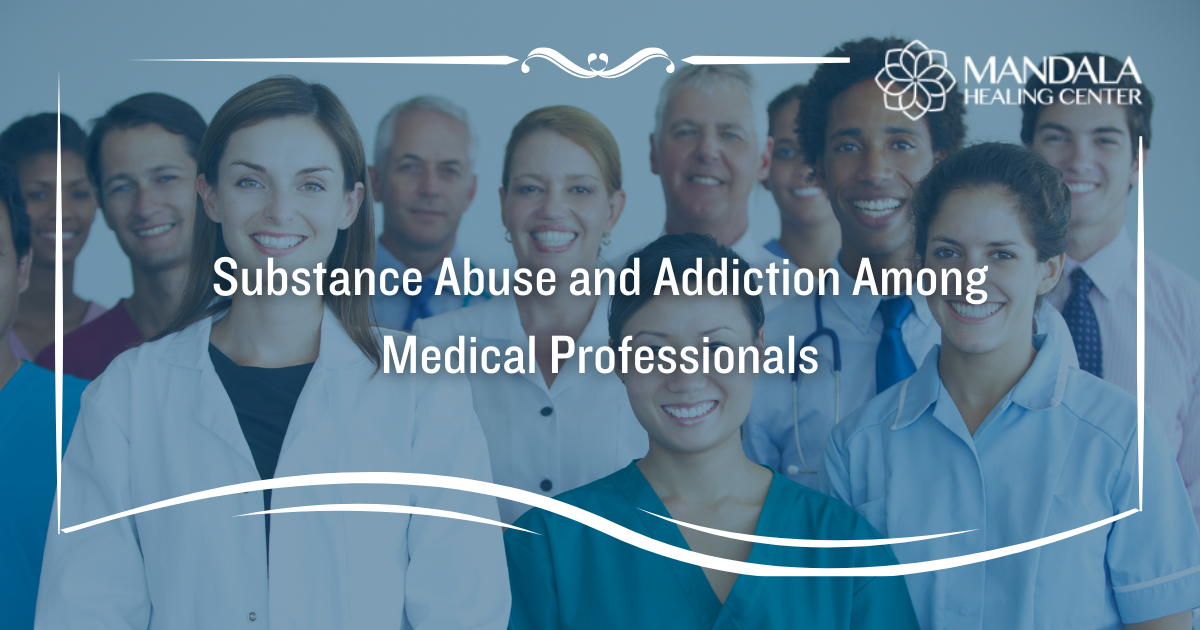Doctors, nurses, and other medical professionals are essential to the health of people in our communities. These tireless specialists often work long hours and face intense stress, uncertainty, and challenges in their work.
People may assume that medical professionals always live healthy lifestyles and avoid habits or practices that could harm their health in any way. After all, as champions of health and fitness, it’s easy to assume that doctors and nurses would always embrace perfectly healthy ideals.
But the reality is different than society’s idealization of people in the medical field. Doctors, nurses, and other medical professionals have some of the highest substance abuse and addiction rates in the American workforce.
Understanding the issue of substance abuse among medical professionals can help people get the treatment they need to regain control of their lives and health. We’ve put together a guide about the connection between substance abuse and medical professionals. If you or someone you love require substance abuse treatment, reach out to the caring specialists at the Mandala Healing Center today.
Substance Abuse Among Medical Professionals: Understanding the Issue
Research performed by USA Today found that more than 100,000 medical professionals struggle with substance abuse or addiction, primarily narcotics like fentanyl and oxycodone. But why do so many medical professionals develop substance abuse or dependence when compared to the general public?
Access
First, medical professionals often have easier access to addictive prescription medications. This alone puts them at increased risk of developing substance abuse or addiction. When a doctor, nurse, or other medical specialist begins to use drugs like Oxycodone or other opioids, they often have a quick, easy route to obtain more.
Performance enhancement
Second, doctors and nurses often work irregular hours. Some medical professionals may turn to drugs or alcohol to help them stay awake during long, continuous shifts. Some may use substances to help them relax or sleep after working nights or irregular hours.
Chronic stress
Lastly, medical professionals often live with a great deal of stress and trauma. Doctors and nurses may carry a great deal of physical and emotional pain due to their work. They face loss, grief, challenges, and hopelessness daily. They may feel regretful or guilty about past decisions.
Living with chronic stress puts people at risk for developing substance abuse–and medical professionals often live with high levels of stress that overwhelm their abilities to cope.
Signs of Addiction Among Medical Professionals
While many people may imagine an addicted person as unable to function, most people who abuse drugs and alcohol continue to work and engage in their life as usual for a long time. This is especially true among medical professionals, who often show up to work without interruptions or performance issues.
It can be challenging to identify drug and alcohol use among medical professionals. Here are some common signs of addiction:
- Requesting to work night shifts where there is minimal supervision and easier access to medications
- Frequent, unexplained absences
- New social, financial, or legal trouble
- Glassy eyes and restricted pupils
- Frequent errors in charting or paperwork
- A friendly relationship with prescribing doctors
- Frequently volunteering to administer narcotics
- Smelling of alcohol or attempts to cover up the smell with mouthwash or breath mints
- Neglected hygiene
- Falling asleep between shifts or on the job
While it can be difficult to recognize the signs of substance abuse among medical professionals, it’s essential to identify a problem and get treatment as soon as possible to avoid severe harm.
Why is it Important to Identify Substance Abuse Among Doctors and Nurses?
Medical professionals provide life-saving care and treatment to their patients. They often need to make quick decisions that can impact the health and safety of their patients. Working under the influence of drugs or alcohol can lead to grave harm. It also prevents teams from working together effectively and puts strain on the other medical professionals working.
People who go to work intoxicated are more likely to cause workplace accidents, become injured, have unexplained or frequent absences, and cause interpersonal problems. The medical community and patients need doctors and nurses to be at their best–and to get the support and treatment they need to do their best work.
Substance Abuse Treatment for Doctors and Nurses
Some medical professionals may worry that they will lose their credibility or employment if they are open about their substance abuse or addiction. But medical professionals must get the treatment they need to continue to work effectively and avoid making life-threatening mistakes at work.
Substance abuse treatment for medical professionals offers the care and support of other treatment programs, but caters to doctors and nurses by addressing their specific concerns and helping them keep their job.
Some specialized aspects of addiction treatment for medical professionals include:
- Assistance with licensing and disciplinary measures
- Ongoing support and aftercare
- Support to restore your career
- Help with transitioning back into the workplace
- Managing and avoiding triggers both at work and outside the workplace
Comprehensive substance abuse treatment includes evidence-based and holistic treatments that can address the behavioral, physical, and psychological aspects of addiction while protecting your ability to do the job you’re trained to do.
Find Treatment Now
If you are one of the many doctors or nurses living with substance abuse or addiction, you do not have to carry this burden alone. Compassionate, comprehensive treatment is just a phone call away. Reach out to the caring specialists at the Mandala Healing Center to discuss your treatment options. Don’t wait another day for the help you deserve. Call today.












